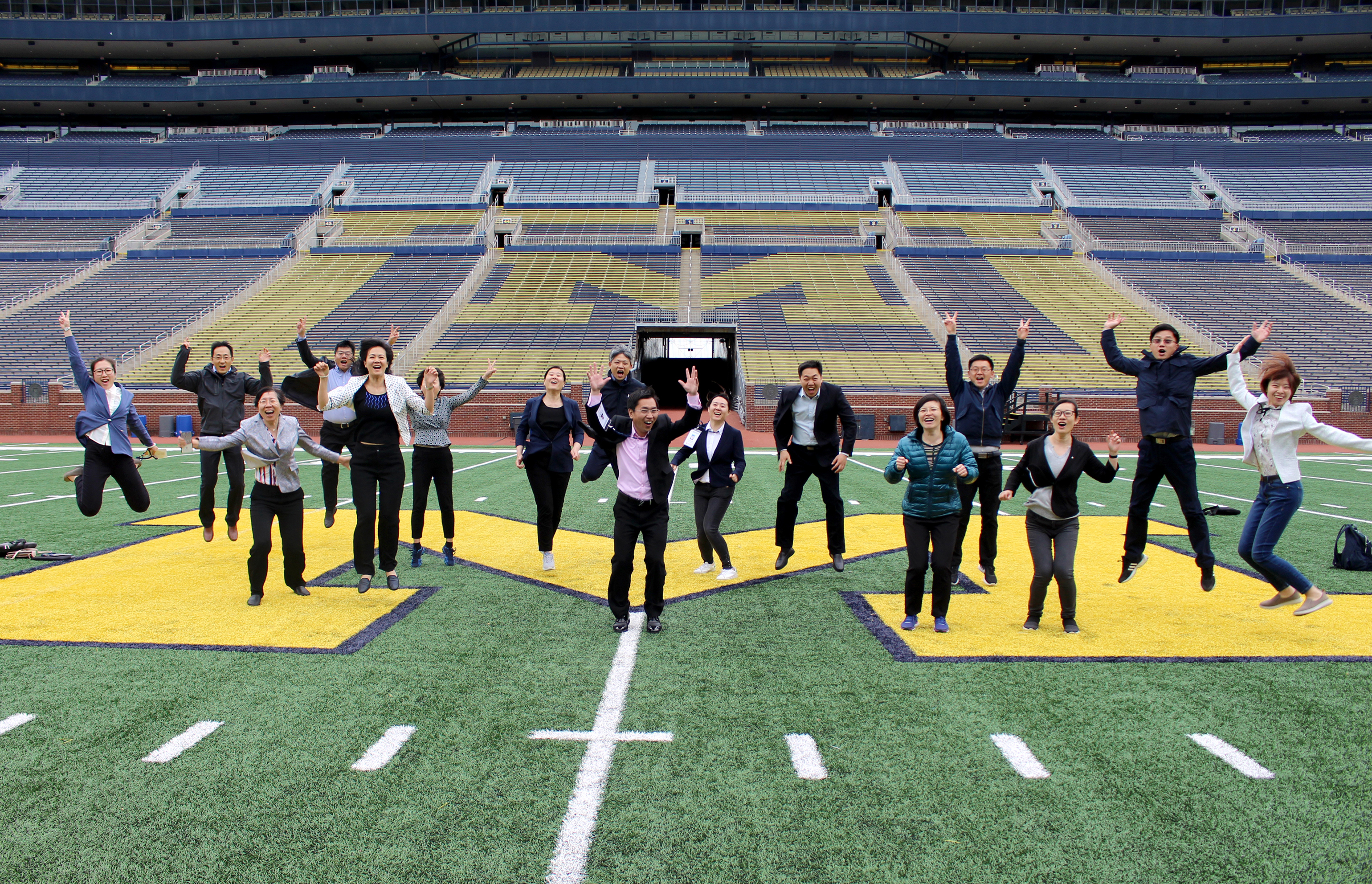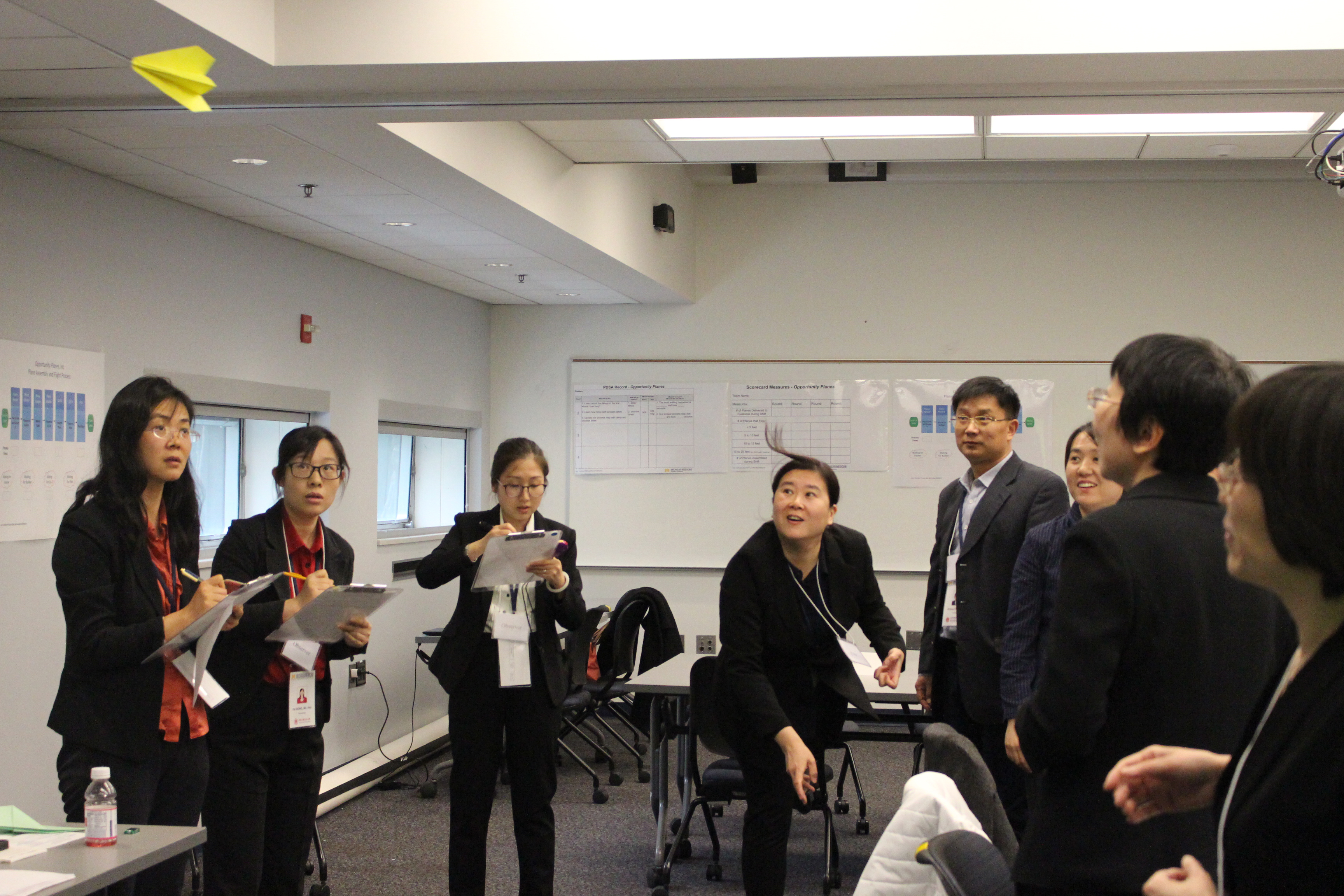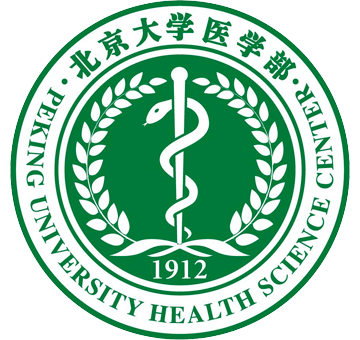PKU Third Hospital group visits Ann Arbor to kick off new training program for hospital administrators
Sixteen physicians and administrators from Peking University Third Hospital recently became the first to complete a new Global REACH training program for healthcare leaders from overseas.
The group, which included an ophthalmologist, a neurologist, a surgeon, a pediatrician, a gynecologist and others, spent nearly all of May in Ann Arbor for the inaugural Global Executive Education Program. They met with leaders and chief administrators from various Michigan Medicine units and departments to learn about healthcare administration. Training sessions covered everything from faculty development to, to Lean Thinking and risk management, in addition to a day- long Leadership Challenge program, and tours of various clinical and research facilities.
“I think everyone in our group was quite impressed with the way the training program was organized. We all sensed the passion of the people at the University of Michigan,” said Lixiang Xue, Director of the Peking University Third Hospital Biobank facility. “I feel the passion and the love they bring to their jobs.”
Over the course of the three-week program, Xue and the other attendees heard from Michigan Medicine leaders in finance, patient safety, medical education, clinical research, and more. They got behind-the-scenes tours of many parts of the health system, from Survival Flight and Emergency Medicine to the medical school’s unique simulation training center. About 64 Michigan Medicine faculty and administrators helped deliver various aspects of the curriculum, which was developed by Global REACH.
“This training wouldn’t be possible without our colleagues across Michigan Medicine who graciously offered their time and talents for the benefit of our guests. I can’t thank them enough,” said Global REACH Program Manager Jiawei Ribuado, PhD, the program’s chief organizer. “Because of their willingness to share their expertise, our trainees are returning to China with new tools and ideas to help improve care for their patients.”
Trainees were asked on the final day of the program to present before the group about key takeaways and concepts to take back home. Some spoke of faculty development programs, reconfiguring lab space to foster collaboration among research teams, or implementing daily huddle models like those they observed at Michigan Medicine. Nearly every participant singled Lean Thinking as a likely opportunity for future implementation following a two-day Lean course led by physicians Jack Billi, Jennifer Holmes, Cemal Sozener, Benjamin Bassin, and Lean trainers Tom Frederick and Patti Craig.
“For me, Lean Thinking was a powerful concept that I plan to use to empower residents in my ward, creating more opportunities to be active participants in the decision making process,” said Pediatrician Tongyan Han, MD, MS.
The group is the first of four coming this summer to Ann Arbor to participate in the Global Executive Education Program. The next cohort, arriving in early July, will learn about clinical and translation research. August will see two more groups. All of the initial groups are from China, although the program is to attract participants from other countries with rapidly expanding healthcare infrastructure.
“There is a really a need for this kind of training,” said Orthopedic Surgeon Yuping Yang, MD, PhD, who was the leader of the most recent cohort from Third Hospital. “These concepts can be applied to our daily work, but will take some time because the organization is so large. Step by step we can find some things to reform.”




